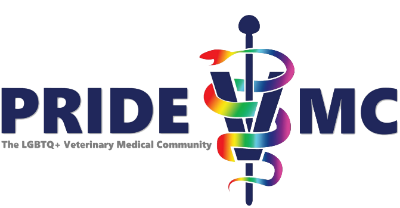RIGHT TO ADVOCACY
Right to Advocacy
Author: Ewan Wolff, PhD, DVM, DACVIM
Review: Mia Cary, DVM
From the GIBOR
“When needed at an institution or workplace, there should be documented efforts to find support through a third party (e. g. insurance gender affirmation services, local pride center services, national/international gender diverse organization resources, independent contractor, etc.) or when logistically feasible a trained diversity and inclusion advocate. These advocates should be knowledgeable about issues and challenges that transgender, non-binary, and gender non-conforming employees may encounter. Human resources should be aware of transgender health insurance, care access, and civil rights issues should they be called upon to discuss them.”
Introduction
In keeping along the lines of freedom from explanation, gender diverse people in the profession should not be tasked with constantly being a self-advocate. Marginalized communities should be consistently supported for their evolving needs for purposes of equity and inclusion. The gender diverse community is deserving of up to date training for HR personnel. Given that there is complexity around gender diverse rights, healthcare insurance, bathroom access, and other areas, it is understandable if some HR staff are underprepared to help. What is not excusable is being unwilling or unable to provide HR support on the basis of gender identity.
Historical Precedent
Advocacy for gender diverse rights in a mainstream setting is a relatively new concept as of the last decade. Although gender diverse people have existed for millenia, and transgender people have been recognized since the 1880s, the idea that gender diverse people should have access to gender affirming care, gender neutral, and gender aligned facilities and advocates who understand the needs of the community is a trend that is still well underway. Without this extensive history, it is common for norms from the early 2010’s to be brought up in conversation that are ages behind current understandings and needs. As a yardstick, the WPATH standards that govern care for gender diverse people continue to evolve and are only just completed in revision (https://www.wpath.org/soc8). Because of this shifting landscape in our understanding, the historic record is not a fair way of assessing how to move forward.
Legal Precedent
Due to the current shifting landscape, please stay abreast of the latest information by engaging with organizations such as Transgender Law Center and independent journalists such as Erin Reed.
Impacts of Harm
The full impact of harm for this right to advocacy depends upon the individual involved; however, given that recognition of gender diverse identity is lifesaving and that neglecting to advocate for gender diverse people can encourage violence, there may be a significant amount on the line by not having appropriate advocacy present.
Individual Action
If you note that gender diverse colleagues are not receiving appropriate advocacy for their needs, then you can:
- Educate yourself – see the resources below.
- Ask gender diverse people what they need (if feasible).
- Say something to your supervisor and HR.
- Reach out to the local Pride LGBTQ+ center for help.
- Be persistent and ask why movement has not happened if needs are not being met.
- Reach out to the ACLU or HRC or the resources below if you need help.
- If you or anyone you know is experiencing suicidal thoughts or feelings as a result of your experiences trying to get advocacy, please contact the National Trans Lifeline (tel:+1-877-565-8860) or the Trevor Project.
If you are gender diverse and are not receiving advocacy on your behalf:
- Reach out for inside help and outside help.
- Know that you are not alone and that others want to help.
- Reach out to PrideVMC for advocacy if needed and resources.
- Reach out to the advocacy resources listed below.
- Consider resources like FolxHealth or Plume Health for access to gender affirming care.
Implementation
Anonymously survey your community to understand their needs and build an implementation checklist. Identify areas where individuals may not currently have advocacy support and reach out for additional information as follows:
- Engage employees involved in Human Resources to add training concerning the Gender Diverse community. Some modules are available through Brave Space and Journey for Teams, however these are not in the depth sufficient to be of help at the level that is needed for HR expertise.
- Provide employees access to the resources available from Out & Equal which includes resources from multiple companies that have developed materials around the gender diverse community. (https://outandequal.org/).
- The National LGBTQIA+ Health Education Center web modules for training: https://www.lgbtqiahealtheducation.org/resources/in/transgender-health/
Training from organizations like Black Trans Women Inc (https://blacktranswomen.org/ ) and TransAffirming Training and Consulting should be considered (https://www.transaffirming.co/listing_page/our-team/). - Consider LGBTQ+ support groups like the Veterinary Hope Foundation.
Consequences of Violation
The following resources will help to understand the consequences of violating someone’s right to advocacy.
- Prior to contacting veterinary organizations related to HR, please check to see if they have signed the Gender Identity Bill of Rights (GIBOR) (https://pridevmc.org/gibor/).
- If no informed advocacy is being provided then please contact PrideVMC for further guidance at info@pridevmc.org.
- Contact the National Center for Transgender Equality (https://transequality.org/).
- If you have an ARG, ERG, or DRG for employees then please reach out to them internally.
- Contact the Transgender Law Center for Resources (https://transgenderlawcenter.org/)
- Consider legal consultation if needed, however, understand that not all situations around advocacy rise to the level of legal protection.
Additional Resources
- What do I need to know about transgender and nonbinary healthcare (Planned Parenthood) https://www.plannedparenthood.org/learn/gender-identity/transgender/what-do-i-need-know-about-trans-health-care
- Attacks on gender affirming care by state (HRC) https://www.hrc.org/resources/attacks-on-gender-affirming-care-by-state-map
- Transgender Rights (ACLU)- https://www.aclu.org/issues/lgbtq-rights/transgender-rights
- LGBT Foundation Trans Advocacy Service https://lgbt.foundation/help/trans-advocacy-service/
- Transgender Law Center Legal Services- https://transgenderlawcenter.org/legal-services-project/
- LGBTQ Centers Directory https://www.lgbtqcenters.org/LGBTCenters
- List of LGBT Centers in the US https://en.m.wikipedia.org/wiki/List_of_LGBT_community_centers_in_the_United_States
- National Center for Transgender Equality Health Coverage Resources https://transequality.org/health-coverage-guide
Contact Us
We want to hear from you. Please contact us with any questions, suggestions or inquiries.
©2023 PrideVMC | 584 Castro Street, #492 | San Francisco, CA 94114, USA
